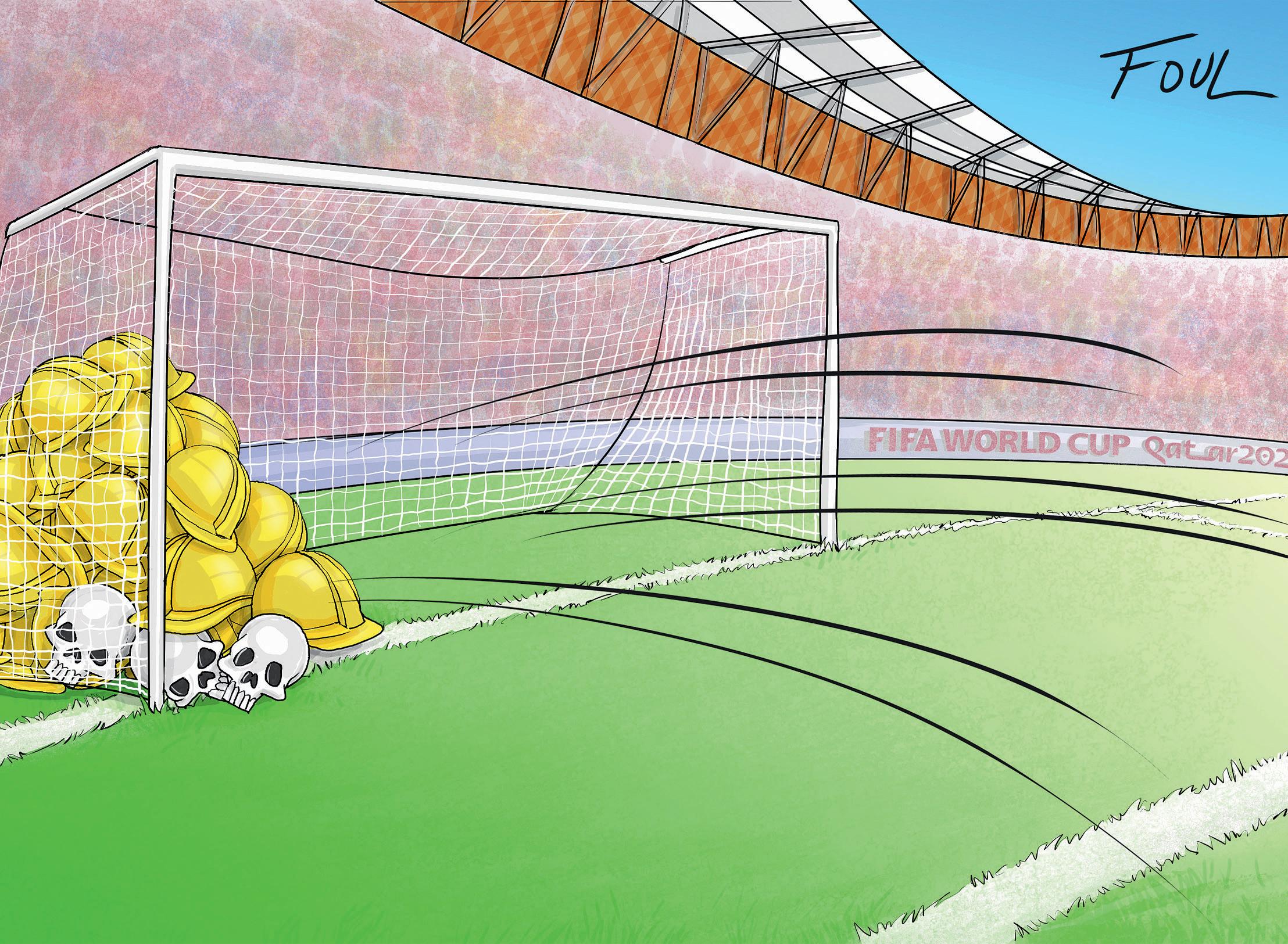
The game was at the Cooperage Stadium in Mumbai and we had gone to see East Bengal, a legendary Indian team, play in a cup competition. The team had been formed during the days of the Raj to represent the Hindus of East Bengal. This was where my father had grown up, amid much luxury, our family being part of the rich Hindu minority that dominated East Bengal, where most of the population was Muslim.
All of this was lost in 1947 as a result of the partition of India when East Bengal became East Pakistan, now Bangladesh, and millions of Hindus left. My father, who had made Mumbai his home, knew he could never go back. Watching the East Bengal team that Sunday afternoon was his way of connecting with the land he always regarded as home and whose loss he mourned. As East Bengal won, my father's spirits lifted.
Like my father, millions will be supporting their teams during the Qatar World Cup for reasons that go far beyond 22 men kicking a ball for 90 minutes. They will do so, despite the World Cup being held in a country with a dreadful human rights record and whose treatment of migrant workers is appalling. I am under no illusions, having visited Qatar, met the migrants who built the stadiums and seen their dreadful living conditions. But, despite that, I was in front of my television last Sunday when Qatar kicked off the competition.
At every professional level, the game is no longer the pleasant weekend activity of my youth. It is now a sordid marriage between money and football's power barons, with the fans used as pawns to preserve the myth of the beautiful game.
This story is from the November 25, 2022 edition of The Guardian Weekly.
Start your 7-day Magzter GOLD free trial to access thousands of curated premium stories, and 9,000+ magazines and newspapers.
Already a subscriber ? Sign In
This story is from the November 25, 2022 edition of The Guardian Weekly.
Start your 7-day Magzter GOLD free trial to access thousands of curated premium stories, and 9,000+ magazines and newspapers.
Already a subscriber? Sign In

No 298 Bean, cabbage and coconut-milk soup
Deep, sweet heat. A soup that soothes and invigorates simultaneously.

Cottage cheese goes viral: in reluctant praise of a food trend
I was asked recently which food trends I think will take over in 2025.

I'm worried that my teenage son is in a toxic relationship
A year ago, our almost 18-year-old son began seeing a girl, who is a year older than him and is his first \"real\" girlfriend.

BOOKS OF THE MONTH
A roundup of the best recent science fiction, fantasy and horror

Dying words
The Nobel prize winner explores the moment of death and beyond in a probing tale of a fisher living in near solitude

Origin story
We homo sapiens evolved and succeeded when other hominins didn't-but now our expansionist drive is threatening the planet

Glad rags to riches
Sarcastic, self-aware and surprisingly sad, the first volume of Cher's extraordinary memoir mixes hard times with the high life

Sail of the century
Anenigmatic nautical radio bulletin first broadcast 100 years ago, the Shipping Forecast has beguiled and inspired poets, pop stars and listeners worldwide

How does it feel?
A Complete Unknown retells Bob Dylan's explosive rise, but it als resonates with today's toxic fame and politics. The creative team expl their process-and wha the singer made of it all
Jane Austen's enduring legacy lies in her relevance as a foil for modern mores
For some, it will be enough merely to re-read Persuasion, and thence to cry yet again at Captain Wentworth's declaration of utmost love for Anne Elliot.